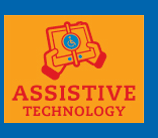Children with auditory processing deficits typically demonstrate one or more of the following problems:
- Poor Auditory attending skills
- Deficits in foreground/background discrimination
- Limitations in auditory memory and retrieval
- The following guidelines are based in strategies designed to minimize the impact of such problems upon academic achievement. Remember, you are trying to train in coping, not remediation.
Classroom Placement
Determine the available options for classroom placement. Consider such critical factors as: acoustics of the classroom relative to the noise level and reverberation, the amount of structure within the classroom, the teacher’s communicative style.
Look and Listen
Children with even mild auditory problems function much better in the classroom if they can both look and listen. Therefore, preferential seating is a major consideration in managing such children. However, seating in the front of the room may not always best placement. These children may need the visual cue of the person in front of or beside them. Experiment and see what type of seating arrangement is most beneficial. Consider seating away from open doors and open windows.
Gain attention
Always gain the child’s attention before giving directions or initiating class instruction. Calling the child by his name or gentle touch will serve to alert the child and to focus his attention upon the classroom activity.
Check comprehension
Ask children with an auditory deficit questions related to the subject under discussion to make that they are following and understanding discussion. This also enhances their concentration if they know you will often be doing this.
Rephrase and Restate
Encourage children with auditory processing problems to indicate when they do not understand what has been said. Rephrase the question or statement. Certain words may contain sounds or blends that are not easily discriminated. By substituting words and simplifying the grammar, the intended meaning may be more readily conveyed. Keep instruction relatively short. Also give the instructions and important concepts when lowest auditory and visual distractions are present. Understanding complex messages in the presence of competing sensory stimulation is very difficult.
Pre-tutor Child
Have auditorally impaired children read ahead on the subject to be discussed in class so that they familiar with new vocabulary concepts. Such pre-tutoring is an important activity and the parents can undertake.
Visual Aids
Visual aids help children with limited auditory skills by capitalizing on strengths in visual processing and thus providing the auditory/visual association often necessary for learning new concepts and language.
Quiet study areas
Provide an individual study area relatively free from auditory and visual distractions. Such and area helps minimize the child’s problem in foreground/background discrimination.
Write Instructions
Children with auditory problems may not follow verbal instructions accurately. Help them by writing assignments on the board so they can copy them in a notebook. Also use a “buddy system” by giving a classmate the responsibility for making certain the child is aware of the assignments made during the day. It is helpful to review instructions with the child after class.
Monitor Efforts
Remember the children with impaired auditory function become fatigued more readily than other children. Subsequently, they do not attend because of the continuous strain resulting form efforts to keep up and to compete in classroom activities. Therefore, provide short intensive periods of instruction with breaks during which the child can move around.
Inform Parents
Provide the parents with consistent input so that they understand the child’s success and difficulties as well as the need for individual tutoring at home. Meet as frequently as possible to compare progress.
Since memory is best for real-life events or occurrences, experimental approaches to learning would be beneficial. Parents can help supplement academic material in this manner if a coordinated liaison can be established between home and school.
Give the child praise and reinforcement for even minimal improvement. Encouragement and support are the key factors in developing patterns of success.
S-P-E-E-C-H
This acronym has been found helpful by teacher’s parents over the past few years when communicating with hearing impaired children. More recently teachers working with children having auditory deficits have reported the same pneumonic to the helpful in classroom management. An analysis of “SPEECH” highlights basic strategies for dealing with attending memory and receptive language deficits while capitalizing upon strengths and visual processing.
S - state the topic to be discussed.
P - pace your conversation at a moderate speed with occasional pauses to permit comprehension.
E - enunciate clearly without exaggerated lip movement.
E - enthusiastically communicate using body language and natural gestures.
CH - check comprehension before change topics.
The following are just general suggestions that may be helpful.
- Try a type recorder for class information.
- Don’t start new work all at once, review old work so the child can experience success.
- These children function best when in close proximity and speech is personalized.
- Use their names frequently to hold their attention.
- Use well articulated speech.
- Mannerisms and gestures should be subdued so as not to visually distract the child.
- Carry over to playground activities is important with some children.
- Minimize all competition for attention (communicate with the child only when there are no other activities such as the dishwasher running, radio playing, television on, other children talking).
Set up conversation periods.
Use simple language.
Linguistic concepts are extremely difficult for some children. Use short sentences and one idea at a time. During important conversations, take the child to a quiet room and reduce background noise as much as possible.
Maintain good eye contact.
Provide a quiet room for the child’s “get away”.
The child should learn to modify himself and manipulate his environment outside of the home.
Avoid important conversations around noise.
Do not talk from one room to another when the child is involved with something else.
Structure activities so that the child has few opportunities to be confused. Give information of daily schedule. Minor successes, even if below normal standards, should be praised. These can be built on to increase strengths and provide small landmarks of growth.
Watch discipline.
Be sure the child knows why and what behaviour is being punished.
It is easier to follow two clause sentences if word order is meaning order, for example:
- Move red block first
- Move blue block second
- Move the red block and then move the blue block
Teach the child to use all his capacities, using first the intact modality and then later strengthening the deficit modality of audition.
Make every teaching situation as structured as possible.






























